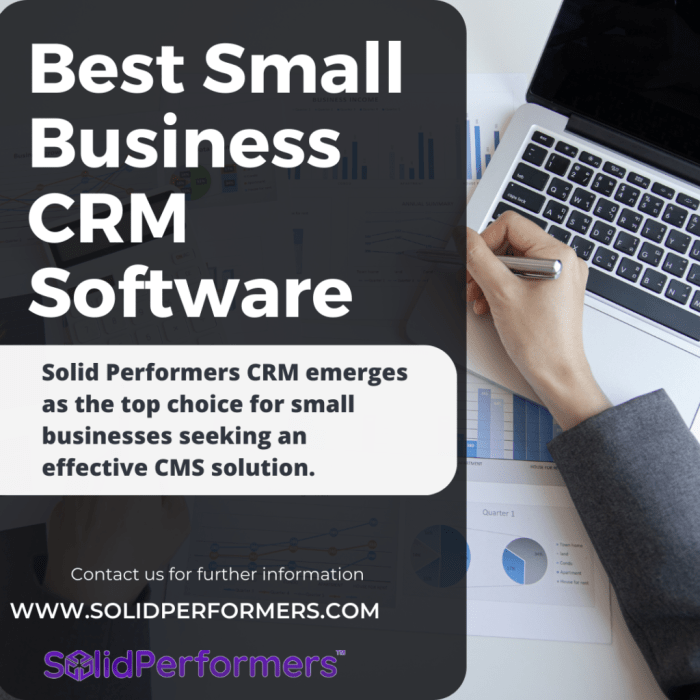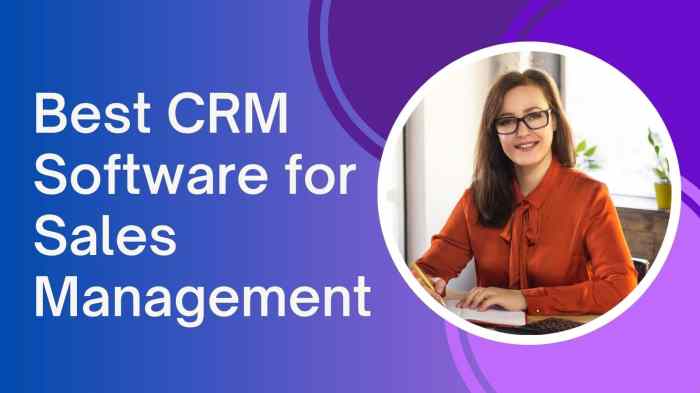Sales crm software for small business – In today’s competitive landscape, small businesses need every advantage they can get. Effective customer relationship management (CRM) is no longer a luxury; it’s a necessity. A robust sales CRM software can streamline operations, boost sales, and improve customer satisfaction, ultimately contributing to significant growth. This comprehensive guide explores the benefits, features, and considerations for choosing the right sales CRM for your small business.
Understanding the Importance of CRM for Small Businesses
Many small business owners mistakenly believe that CRM software is only for large enterprises. This couldn’t be further from the truth. While large corporations might utilize more complex systems, the core benefits of CRM are equally, if not more, crucial for small businesses. These benefits include:
- Improved Customer Relationships: A centralized system allows you to track interactions, preferences, and purchase history, leading to personalized communication and stronger customer relationships. This fosters loyalty and repeat business.
- Increased Sales Efficiency: Automate repetitive tasks like email marketing, lead nurturing, and follow-ups, freeing up your time to focus on closing deals and building relationships.
- Enhanced Lead Management: Effectively manage and nurture leads throughout the sales pipeline, identifying and prioritizing high-potential prospects. This improves conversion rates and reduces wasted effort.
- Better Sales Forecasting: Gain valuable insights into sales trends and patterns, enabling you to make informed decisions about resource allocation and future strategies. Accurate forecasting is essential for sustainable growth.
- Improved Team Collaboration: Centralized information ensures everyone on your team has access to the same customer data, improving communication and collaboration.
- Streamlined Reporting and Analytics: Generate detailed reports on key performance indicators (KPIs) to track progress, identify areas for improvement, and measure the ROI of your sales efforts.
Key Features of a Sales CRM for Small Businesses
While specific features vary across different CRM platforms, several core functionalities are essential for small businesses. These include:
Contact Management:
This is the foundation of any CRM. It allows you to store and organize all your customer information, including contact details, communication history, and purchase history. Look for CRMs with robust search and filtering capabilities for easy access to relevant information.
Lead Management:
Effectively track leads from initial contact to conversion. Features like lead scoring, automated workflows, and lead assignment help prioritize and nurture potential customers.
Sales Pipeline Management:
Visualize your sales process with a clear pipeline view. This allows you to track the progress of each deal, identify bottlenecks, and ensure timely follow-ups.
Reporting and Analytics:
Generate reports on key sales metrics such as conversion rates, revenue, and average deal size. Data-driven insights help you optimize your sales strategies and improve performance.
Automation:, Sales crm software for small business
Automate repetitive tasks like email marketing, follow-ups, and task assignments to free up your time and increase efficiency. This is crucial for small businesses with limited resources.
Integration:
Seamless integration with other business tools, such as email marketing platforms, accounting software, and e-commerce platforms, is crucial for a streamlined workflow. Look for CRMs that offer API integrations or pre-built connectors.
Mobile Accessibility:
Access your CRM from anywhere, anytime, using a mobile app. This is especially important for sales teams that are frequently on the go.
Choosing the Right Sales CRM for Your Small Business
Selecting the right CRM involves careful consideration of your specific needs and budget. Here are some key factors to consider:
- Business Size and Needs: A small business with a few employees will have different needs than a rapidly growing company. Consider the number of users, the complexity of your sales process, and the volume of data you need to manage.
- Budget: CRM software comes in a range of pricing models, from free options to enterprise-level solutions. Determine your budget and choose a solution that offers the features you need without breaking the bank. Consider factors like per-user pricing, one-time fees, and ongoing maintenance costs.
- Ease of Use: Choose a CRM that is intuitive and easy to use for your team. A user-friendly interface will encourage adoption and maximize the value of the software.
- Features and Functionality: Prioritize the features that are most important to your business. Some CRMs offer a wide range of features, while others focus on specific functionalities. Make sure the CRM aligns with your sales process and workflows.
- Customer Support: Choose a CRM provider that offers excellent customer support. This is crucial for resolving any issues and getting the most out of your software.
- Scalability: Consider the future growth of your business and choose a CRM that can scale with your needs. You don’t want to be forced to switch platforms as your business expands.
- Integrations: Assess the CRM’s integration capabilities with other business tools you use, such as email marketing platforms, accounting software, and e-commerce platforms. Seamless integration streamlines your workflow and improves efficiency.
Popular Sales CRM Software Options for Small Businesses
Several excellent CRM options cater specifically to small businesses. Some popular choices include HubSpot CRM (freemium), Zoho CRM (various pricing plans), Salesforce Sales Cloud (various pricing plans), and Pipedrive (various pricing plans). Each offers a slightly different set of features and pricing models, so it’s essential to research and compare options to find the best fit for your business.
Frequently Asked Questions (FAQ)
- Q: Is CRM software really necessary for a small business? A: While not strictly mandatory, a CRM significantly enhances efficiency and customer relationships, making it a worthwhile investment for most small businesses looking for growth.
- Q: How much does CRM software cost? A: Costs vary widely depending on features, users, and provider. Free options exist, but paid plans offer more advanced features and typically cost between $10 and $100+ per user per month.
- Q: How long does it take to implement a CRM? A: Implementation time depends on the complexity of the system and your business processes. Simpler systems can be implemented quickly, while more complex ones might take weeks or months.
- Q: What if my employees don’t want to use a new CRM? A: Proper training and demonstrating the benefits are crucial. Highlighting time savings and improved efficiency can encourage adoption.
- Q: Can I integrate my CRM with my existing software? A: Many CRMs offer integrations with popular business tools. Check the provider’s website for a list of compatible applications.
- Q: How do I measure the success of my CRM implementation? A: Track key metrics such as lead conversion rates, sales growth, customer satisfaction, and sales team productivity. Regularly review these metrics to assess the impact of your CRM.
Conclusion
Investing in the right sales CRM software can be a game-changer for small businesses. By streamlining operations, improving customer relationships, and providing valuable data-driven insights, a CRM empowers you to achieve sustainable growth and outpace the competition. Take the time to carefully evaluate your needs, compare different options, and choose a solution that aligns with your budget and long-term goals.
References
Call to Action
Ready to take your small business to the next level? Explore the various CRM options available and choose the one that best suits your needs. Start maximizing your sales potential today!
Essential FAQs: Sales Crm Software For Small Business
What are the key features to look for in a small business CRM?
Essential features include contact management, lead tracking, sales pipeline visualization, reporting and analytics, and basic customer support tools. Consider integration capabilities with other business software as well.

Source: solidperformers.com
How much does sales CRM software cost?
Pricing varies widely depending on features, vendor, and the number of users. Options range from free, basic plans to more expensive enterprise-level solutions. Many vendors offer tiered pricing structures.
How long does it take to implement a CRM?

Source: solidperformers.com
Implementation time depends on the complexity of the system and the size of the business. Smaller businesses might implement a basic system in a few weeks, while larger organizations may require several months.
What if my employees are resistant to using new software?
Thorough training and ongoing support are crucial for successful adoption. Highlighting the benefits and providing clear, step-by-step instructions can help overcome resistance.
Can a CRM help improve customer satisfaction?
Yes, by centralizing customer information and providing a better overview of interactions, a CRM helps businesses provide more personalized and efficient service, leading to higher customer satisfaction.
